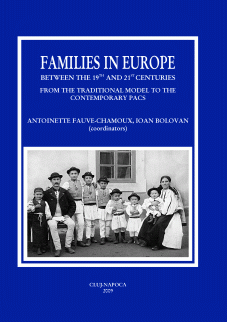Church and domestic order in Romanian Society (1750-1834)
Church and domestic order in Romanian Society (1750-1834)
Author(s): Constanţa GhiţulescuSubject(s): History
Published by: Centrul de Studiere a Populaţiei
Keywords: state; church; Romanian society; domestic order; paternal authority; woman as wife and mother
Summary/Abstract: The present study aims to outline the main characteristics of the relation between state – church – family in the Romanian society during a transition period (1750 – 1834). From the actual juridical control exerted by the church until 1780 we gradually pass to collaboration between the two institutions, starting with Pravilniceasca Condică. The church would keep its privilege of judging and sentencing, while the state would apply its decisions. This collaboration was not always smooth and was burdened by bureaucracy. A complaint was sent from one institution to the next, while the litigants were heard and sentenced by both the ecclesiastical and the civilian courts. The sentence was pronounced by the prince. The church secured its control over domestic life through a number of means, mainly through the paternal authority. The foundation of domestic order was the authority of fathers, which in turn was the main instrument in controlling this domestic order. At the same time, the family entered the political discourse of the time and became a reflection of modern society, representing the State in miniature.
Journal: Romanian Journal of Population Studies
- Issue Year: 3/2009
- Issue No: Supplement
- Page Range: 437-448
- Page Count: 11
- Language: English
- Content File-PDF

